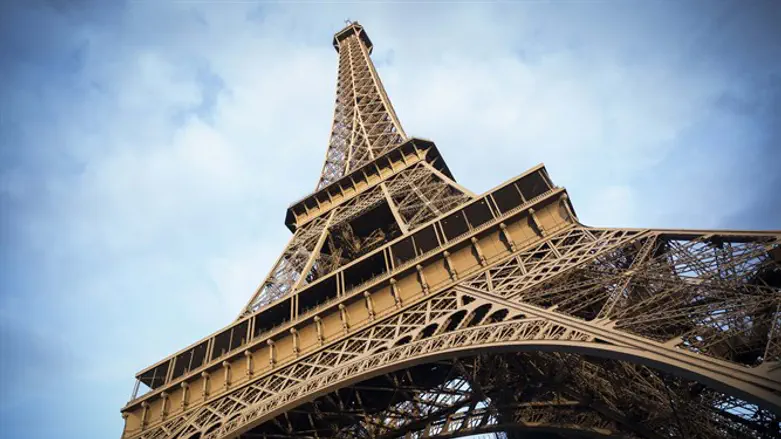
Israel's decision to approve more than 2000 homes in villages in Judea and Samaria (aka 'West Bank') drew the standard condemnations from the European Union (EU) and France. The EU said that Israeli plans undermine the viability of a two-state solution and prospects for a lasting peace. The EU continues to ignore the fact that the Palestinian Authority systematically rewards violence. There is thus no logical relationship between the establishment of a Palestinian state and lasting peace.
The text of the spokesman of the French Foreign Ministry merits more attention. It condemned Israel's decision to expand settlement housing. It added that such activity does not correspond with the United Nations Security Council Resolution 2334 which forbids settlement building. According to the definition of the International Holocaust Remembrance Alliance (IHRA), the United Nations is, however, an organization which is a frequent anti-Semitic actor. The French spokesman also repeated the pipedream of the EU saying that the settlements endanger the two-state solution, the only solution that would allow for peace between the Israelis and the Palestinians.
Israel usually does not respond to such condemnations which it apparently considers a kind of evil European ritual. Such an attitude may have made sense at a time when Israel was more of an outsider in the world. Israel’s political position has however greatly improved in recent times. France, on the other hand is experiencing a particularly low period. Its government cannot control internal sources of violence. This makes the condemnation of Israel an act of extreme arrogance. Those who sit in glasshouses should not throw stones.
Once a week, for the past two months, there have been major demonstrations by the so-called "yellow vests" against France’s economic situation. Some protesters loot and destroy public and private property. One of the nation’s iconic symbols, Paris’ Arc de Triomphe, has been damaged. Demonstrators are calling for the resignation of President Emanuel Macron. His popularity dropped to 23% at the beginning of December. This matches the approval rating of his socialist predecessor François Hollande in late 2013. The latter is considered the least popular French president in modern history.
There is another more important reason not to let the French condemnation pass without a response from Israel. An EU organization, the Fundamental Rights Agency (FRA) published a report in December 2018 titled Experiences and Perceptions of anti-Semitism. The FRA claims that this study is the largest study on European anti-Semitism ever undertaken. The survey asked the Jews polled about their experiences and perceptions of hate crime, discrimination and anti-Semitism in twelve member states. These together are home to over 96% of the EU's estimated Jewish population.
Opinions of French Jews about the Jewish situation in their country were, on many issues, the most negative in Europe. In France, almost all respondents saw anti-Semitism as a “very big” or “fairly big” problem. A somewhat smaller percentage saw racism in France similarly. Almost all French respondents said that anti-Semitism had increased during the past five years.
The survey specifically asked about anti-Semitic graffiti, desecration of Jewish cemeteries, vandalism of Jewish buildings or institutions, expressions of hostility toward Jews as well as in the media and political life, and on the internet (including social media). In France, the majority of respondents rate almost all these manifestations of anti-Semitism as a big problem.
Virtually all French respondents considered the expressions of hostility toward Jews in the street and other public places a big problem. The majority of French respondents -- a higher percentage than elsewhere -- worried about being confronted with anti-Semitic verbal insults and physical attacks in the coming twelve months. An even higher percentage of those polled were concerned that family members or close friends might become victims of anti-Semitic insults and harassments in the next twelve months. Again this percentage was higher than in any other country surveyed.

In 2018, a manifesto against Muslim anti-Semitism was signed by 250 Jewish and non-Jewish high profile individuals. France was also the country where the percentage of respondents who said that they never wear or display items which could identify them as Jewish such as a skullcap or a Star of David was highest. Muslims were considered among the country’s three top categories of anti-Semitic perpetrators.
France was also the country where the percentage of respondents who said that they never wear or display items which could identify them as Jewish such as a skullcap or a Star of David was highest. Muslims were considered among the country’s three top categories of anti-Semitic perpetrators.
The situation for Jews in France is so severe that in 2018, a manifesto against Muslim anti-Semitism was signed by 250 Jewish and non-Jewish high profile individuals. This document sums up the main elements of violence and incitement against Jews emanating from parts of this immigrant community.
When the protest of the 'yellow vests' began, Israeli Deputy Foreign Minister, Michael Oren, joked that Israel would host an international peace conference for France. However, making fun of the French, in their misery, may not be the best reaction to their Foreign Office’s condemnation of Israel’s activities.
Responding to this condemnation may provide a unique occasion to draw international attention to the widespread anti-Semitism in France. With more media attention to French anti-Semitism elsewhere in the West one hopes that the French government will strengthen its fight against it. Additionally, if the French government starts to realize that condemnations of Israel have a boomerang effect, the net gain of a strong Israeli reaction will be even greater.